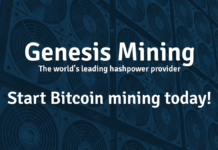“There is no reason to believe that this one will be controversial.”
Just days away from making one of its biggest-ever upgrades, confidence is high among ethereum supporters that the world’s second-largest blockchain will avoid past mistakes and successfully navigate a coming change to its codebase, projected for Sunday night.
“I expect that nothing will happen,” Ethereum Foundation developer and designer Alex Van de Sande told CoinDesk. “Nothing happened with previous hard forks, except for one.”
Packing together a series of upgrades designed to make ethereum lighter, faster and more private, the update, called Byzantium, will be enacted at block 4,370,000 on the ethereum blockchain. Yet, it’s how the change will be enacted – using a hard fork – that has some mindful of possible issues.
A common (yet sometimes controversial) strategy for upgrading blockchains, ethereum has gone through three hard forks without complication. Still, the memory of the fork that didn’t go to plan is still top of mind.
Last summer, an emergency hard fork saw a contingent of the community continue mining on the old blockchain, creating a new asset, ethereum classic. In the aftermath, some users and companies lost funds, while ethereum was suddenly faced with a competing alternative in the market.
General optimism
That said, most users and developers are embracing this particular hard fork, in part, because it aims to execute changes that have been etched into ethereum’s roadmap since the protocol launched in 2015. When contacted, developers largely agreed with this outlook, expressing excitement by the changes to be included in the upgrade.
Stephen King, the principal and co-founder of ethereum-based real estate app RexMLS, parroted Van de Sande’s optimism, emphasizing the successful testing that has been completed.
“The fork is pretty uneventful. Everything went smooth on Ropsten, and it appears like all else is on track for a healthy transition,” he told CoinDesk.
Ropsten is ethereum’s test network, and although the network suffered a spam attack, making transactions impossible and moving some developers to a private testnet, overall, developers said everything moved along as expected. The team was even able to verify a transaction using the technology behind privacy-oriented cryptocurrency zcash, a mechanism which was added to the Byzantium roadmap earlier this summer.
And this possibility of private transactions and smart contracts is something many, including King, are particularly enthusiastic about.
Van de Sande stressed the privacy implications as well, arguing that additions that accommodate the technology underlying zcash are the most user-facing upgrade in the mix.
“It’s cool if you think about the new possibilities,” he said, painting a picture of a blockchain voting app with privacy built in, shielding who voted for which candidate.
That said, Byzantium is a “very technical fork,” said Van de Sande. Most of the changes, he contends, will be difficult to grasp for users, but a relief for developers who will have more options for building applications on top of ethereum.
Rumblings of opposition
But while, for the most part, the changes aren’t controversial, one ethereum improvement protocol (EIP) has generated some controversy over the past several months.
By reducing how much ether is issued in each block, the EIP has the potential to reduce mining profits, and, as is to be expected, some miners aren’t too happy about it. At least one visible protest movement, called Etherite, has sprung up in response, and its lead developer Dylan Young believes the changes could turn off miners driven by profit.
“The problem is that there are a lot of miners and pools who solely mine for the revenue and do not actually know what they are contributing to,” Young said, adding that some miners he talked to are “completely unaware” of the changes.
Others, he said, felt that they had “no choice” over the block reward reduction.
A representative from mining pool Nanopool, representing about 9 percent of the ethereum hashrate, seemed to concur. “Block reward is a secondary issue, that is under control of Ethereum Foundation. Let’s be honest. Ethereum history is written by developers and investors, not by miners now,” the representative said.
Still, they didn’t seem very interested in the debate, arguing that the benefits and drawbacks of these economic changes are “hard to predict.”
Further, Etherite doesn’t seem to be gaining much momentum, with only one Reddit post and one GitHub contributor. And the mining pool operators that responded to CoinDesk’s requests for comment were not interested in joining the movement.
One possible reason for this, according to Van de Sande, is that really most miners understand that while Byzantium will reduce each block reward from 5 ETH to 3 ETH, the change also boosts how often those blocks are created, giving miners more chance to earn the reward.
With that, Van de Sande argued, miners should still make about the same amount of money as they did before the fork.
The difficulty bomb
But even if there was substantial dissent, Young seems right about one thing: miners don’t have much choice.
And that’s because ethereum developers have built in a so-called “difficulty bomb” – a piece of code that gradually slows down the rate that ethereum blocks are issued on its blockchain in order to convince users to move over to a new chain.
So, even if miners continue to mine the old version of ethereum, they’ll be economically disincentivized to keep doing so.
Van de Sande said:
“If they continue to mine it, the fork will die on its own.”
And this trick of sorts is one reason why Young is concerned that miners aren’t getting enough say in the decision. At least, not as much say as they got during The DAO fork, where miners were polled as a way to vote on the measure.
“This time miners were excluded from the decision,” Young said.
Young argued EIP 649 should be split off into a separate hard fork so “people can assess it on its own merits.”
“I think that a controversial change should stand on its own,” he continued.
Though it’s worth noting that others, such as Bitfly founder and CEO Peter Pratscher, operator of ethereum’s mining pool Ethpool, don’t see it that way. “Our miners have not yet asked us to organize a vote up to now,” he remarked.
Either way, with less than three days to go before the hard fork executes, it’s unlikely Young, and any potential supporters will get to debate the argument.
Railroad crossing image via Shutterstock
The leader in blockchain news, CoinDesk is an independent media outlet that strives for the highest journalistic standards and abides by a strict set of editorial policies. Interested in offering your expertise or insights to our reporting? Contact us at [email protected].
Our Social Networks: Facebook Instagram Pinterest Reddit Telegram Twitter Youtube






